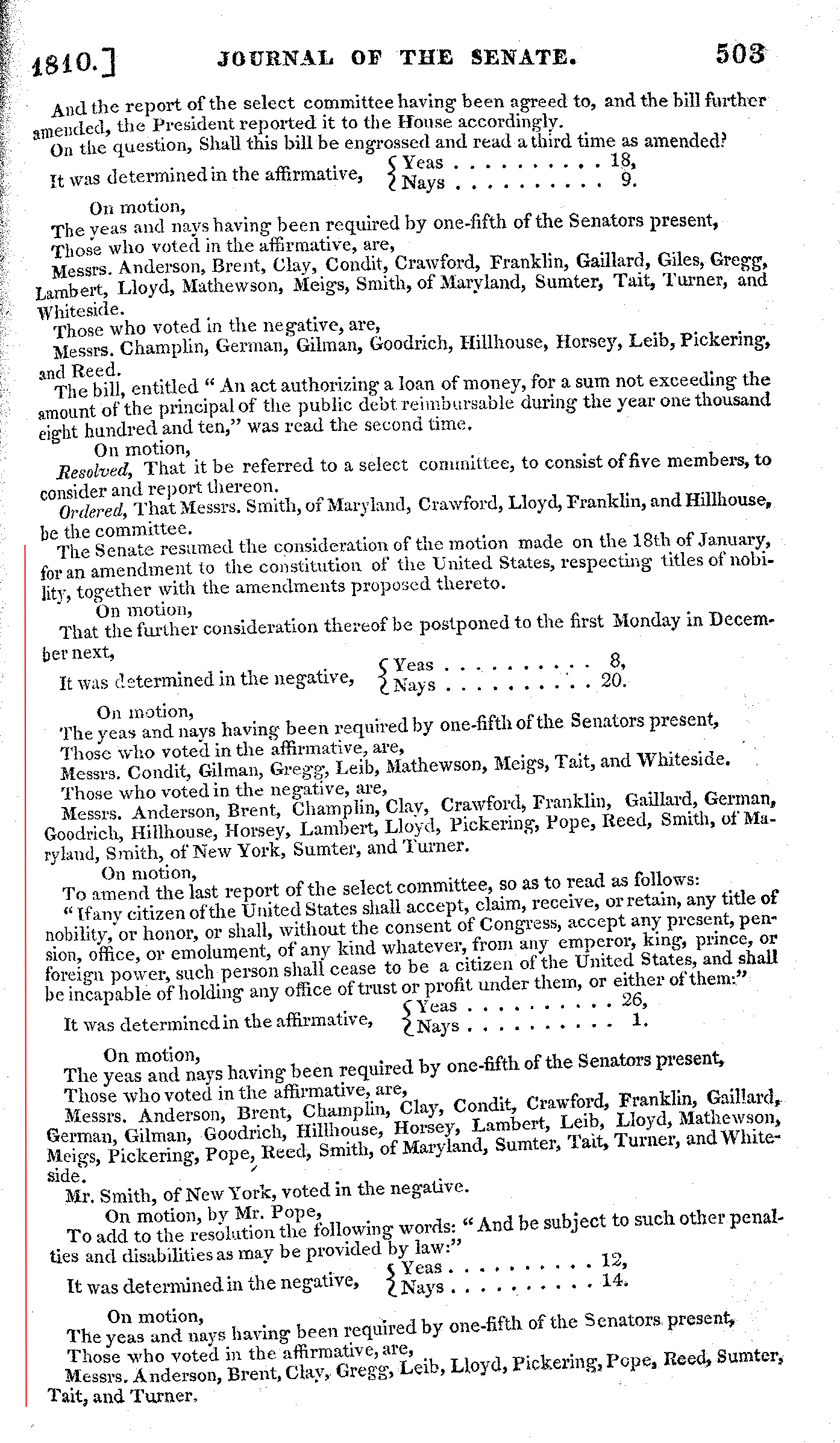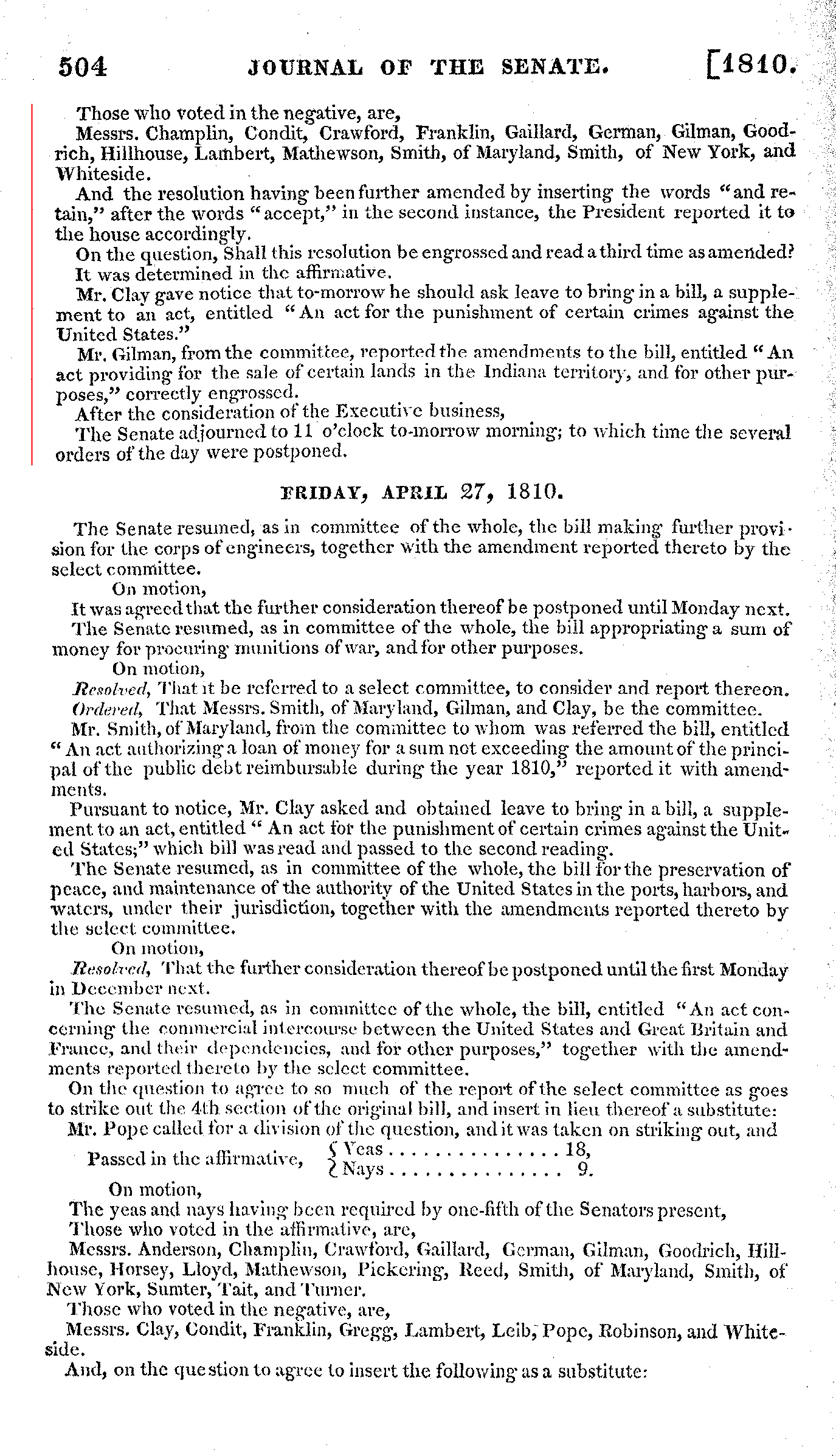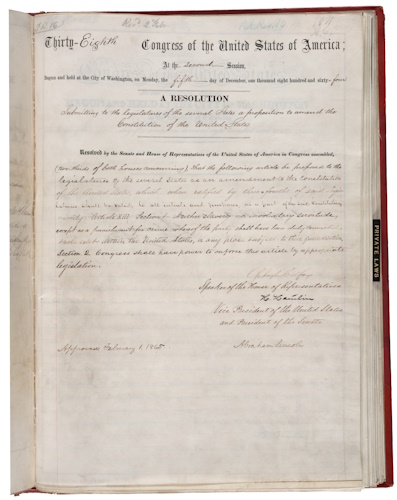
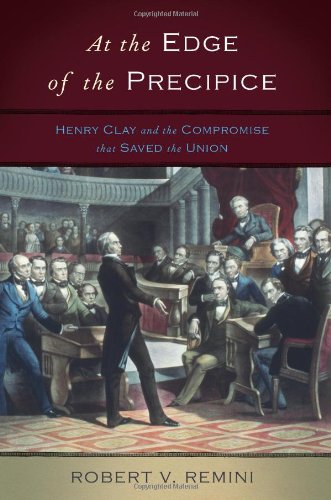

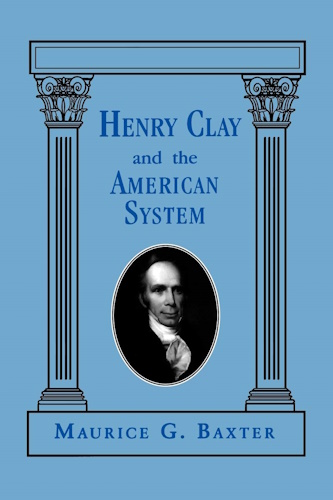

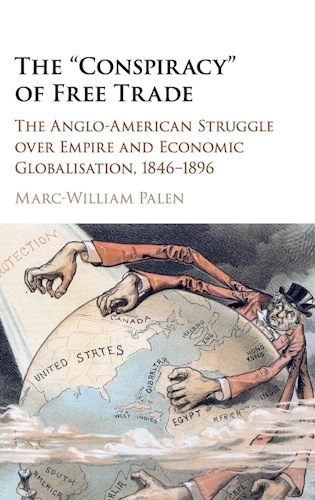



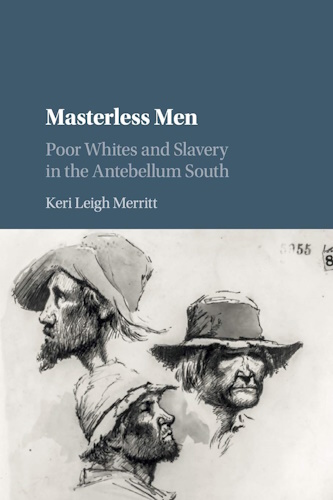

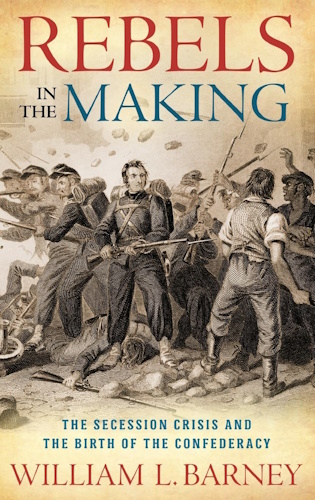

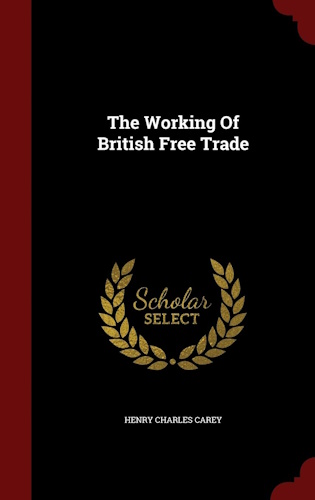

The Great Mr. Lincoln's Fraud
by
Richard C. Green
The Crittenden Proposition or Joint Resolution, of 1861
(Retrieved from archive.org)
The Crittenden Proposition or Joint Resolution, of 1861
Article 7. Section 1.
"The elective franchise and the right to hold office, whether Federal, State, territorial or municipal, shall not be exercised by persons who are, in whole or part, of the African race.
Comprising Joint Resolutions to change the Constitution for the United States, the seven sections of amendment known as the Crittenden Proposition or compromise, an attempt to avert secession of the southern states, were soundly defeated in the House of Representatives just a few days before the President-Elect was to take his oath of office. The vote was 113 to 80 on February 27th, 1861.
That man, of course, was Mr. Abraham Lincoln of Illinois, a one-term Congressman who had obtained a pretty good reputation as a calculating and clever politician. It was very nearly the final act in a period of dramatic change and turmoil, one which had begun, both literally and precisely, just one year before on that day.
February 27th of 1860 was Mr. Lincoln's introduction to the intelligentsia of New York City; and furthermore - it was as triumphant an hour of political discourse as ever recorded in these United States. Virtually every word he said was recorded verbatim in the New York Times, which reported that a "large and enthusiastic assemblage" greeted Mr. Lincoln at the Cooper Union. The chairman of that event was William Cullen Bryant and their host that evening was David Dudley Field, Esquire (a prominent New York lawyer). Lincoln - despite being well-known as a lawyer - was not yet a national political figure.
"Does the proper division of local from Federal authority, or anything in the Constitution, forbid our Federal Government to control ... Slavery in our Federal Territories? Upon this Senator [Stephen A.] Douglas holds the affirmative," asserted Abe Lincoln, "and Republicans the negative."
He was received with such raucous enthusiasm that night, that both men of business and young men of ideas began to consider him as a serious candidate for the presidency. It was a dramatic development in American political life.
"As I would not be a slave," said Mr. Lincoln in a famous speech to an Indiana regiment of militia, in 1858, "so I would not be a master. This expresses my idea of democracy. Whatever differs from this, to the extent of the difference, is no democracy."
No doubt many of the idealistic young men who heard him speak that night at Cooper Union were aware of his political views, but they formed only the avant-garde of the emerging political class, the activists and the new leaders. They were not the rank and file voters who had given Republicans big wins in 1858. These views had been popularized in the debates Lincoln had held with his opponent for the Senate in 1858, that self-same Democratic leader, Mr. Douglas.
The principal argument he made that night at Cooper Union, constructing it from those points where he could rely on an original understanding of the Constitution - was that the federal government had and would always have jurisdiction over slavery in the new territories - in a polite manner he ridiculed Douglas and his party, often referred to as "the Democracy." He also alluded to the well-known writings of Benjamin Franklin and Alexander Hamilton, "the most noted Anti-Slavery men of those times," said Lincoln of these founding fathers.
Mr. Lincoln argued from the Constitution for the supremacy of this federal power in the new territories, but he made an assertion in the midst of his speech - in fact, he made it several times - that there were only twelve articles of amendment to be considered besides the original body and text. Only twelve articles?
Bloody Kansas was among those new territories, and was itself in the process of seeking Statehood. Yet, a close examination of the Territorial laws of Kansas, as issued in 1855, shows that there was a Thirteenth Amendment among those articles - and that it had been a part of the Constitution since at least 1819, when Virginia, the final state required to ratify the amendment, published the Revised Code of the Laws of Virginia! Congress had accepted the Kansas laws as representing a lawful Territory, as it had done previously with the Territory of Iowa and as it would later, with the Dakota Territory (1867) and as late as the Wyoming Territory (1876). And what did it say, exactly, this forgotten Article Thirteen?
Every version of it ever discovered contains the same seventy-seven words:
The Original Thirteenth Article of Amendment
To The Constitution For The United States
If any citizen of the United States shall accept, claim, receive, or retain any title of nobility or honor, or shall, without the consent of congress, accept and retain any present, pension, office, or emolument of any kind whatever, from any emperor, king, prince, or foreign power, such person shall cease to be a citizen of the United States, and shall be incapable of holding any office of trust or profit under them, or either of them. [Journal of the Senate]
Thus, this amendment found in the law books of the Territory of Kansas reads precisely the same way it did when it was published in "The Public Statute Laws of the State of Connecticut, As Revised and Enacted By The General Assembly in May 1821", and again and again, even as late as 1839, at the time of La Amistad!
That's right - citizenship in these United States was construed as being entirely under the control of the Congress and defined - constitutionally - as being contrary, by definition, to all titles of nobility and to titles of honor!
Furthermore, the prohibition on accepting presents, pensions (i.e., land or properties that pay an annual stipend), offices or emoluments "of any kind whatsoever" could not be more clear or precise. Each category listed there has a specific meaning in law, and those have not changed much: emoluments were, and still are defined as including contributions to political campaigns.
Having been charged with the power to "regulate Commerce with foreign Nations, and among the several States, and with the Indian Tribes;" Congress can obviously grant its consent to citizens who want to work for foreign-owned businesses, who conduct trade with foreign governments and agencies, or who might want to sail under another flag either as merchants or naval officers - and this can be codified in law. Article I, Section 8 also charges Congress to make "an uniform Rule of Naturalization," and thus the original Thirteenth Amendment is grounded quite clearly in that enumerated power.
Why then, was this lawful article of amendment suppressed by pro-slavery lawyers, beginning in the late 1840's? Why do local Bar Associations ignore it in their publications of the Constitution, while the legislatures of Ohio (1848), and Kansas (1861), repeat their previous publications of it as being proper? And more to the point - who has the lawful jurisidiction over the text of the Constitution, private groups of lawyers or sovereign State Legislatures and conventions?
In fact, the State Legislature of Illinois passed resolutions to have their laws printed, at public expense, in six different editions throughout the 1820s and '30s, with this original Thirteenth article included among the Amendments! So why would Abraham Lincoln, who served in that legislative body during that very era say, to that crowd at Cooper Union, "the present frame of Government under which we live consists of that original [instrument] and twelve amendatory articles framed and adopted since." The U.S. Constitution had contained an Article XIII since 1819. But why? Why would he lie about it?
Could it be because he was in New York City, which was the center of the cotton brokerage business ... which was the very place where many hundreds of well-heeled lawyers were employed by the ship owners and financial agents who had been taking "emoluments" from Spanish slavemasters for decades? What was the dirty little secret of the legal establishment in those great cities where cotton was traded, where it was financed, and where both the crops and the ships that would carry cotton to France and England were insured? And as the slaves on certain southern plantations and on Delaware's and Maryland's farms were insured?
The secret is known today. Just as many fortunes in this country have been obtained by running illegal drugs, in the 20th Century now past, so in the mid-1800s there were fortunes to be made by running slaves. One of the other provisions of the Crittenden Proposition declares that "all State laws which conflict with the fugitive slave acts" be rendered "null and void." Not only that, the supporters of this compromise - seeking to save the union - wanted to act to augment the fees paid to commissioners who were charged with settling disputes over fugitive slaves. Thus they were willing to create a new bureaucracy to keep and protect slavery in those States where it was in existence, while continuing to restrict and prohibition the importation of new slaves! It was an impossible idea.
The original Thirteenth was not written to help abolish slavery as such, nor to promote the economic interests of the slave-owning States. It was passed by the Eleventh Congress, in 1810, for several specific purposes. First, it was created to help stop foreign agents from buying votes in State and federal elections, and secondly, it was written to stop spies and saboteurs from promising rich lands and hereditary titles to officers in the military, thus preventing the manufacture and preservation of American traitors.
There were many Federalists among the distinguished patriots and Senators who helped craft the exact, even Madisonian, language of this amendment: and Connecticut's Senators Chauncey Goodrich, and James Hillhouse voted for it. They helped to create a lop-sided approval of 26 to 1 for these provisions, which were then sent to the House of Representatives. Animosity between those who followed the Federalist line - based on George Washington's political views as understood by his former allies - and the Democratic-Republicans, was intense.
Yet, with very little rancor or debate, the Representatives adopted this Joint Resolution to Amend by a tally of 87 to 3. One of those three 'negative' votes came from Congressman Killian Van Rensselaer of New York, as did the sole vote against it in the Senate -- which was cast by John Smith, also of New York. Not surprisingly, then, the legislature of New York State rejected this article of amendment in its deliberations of 1812, and again in 1813. By then, the anti-Madison Federalists were gaining in strength, and dominated both Connecticut and Rhode Island.
A comprehensive review of all the available State publications from that era, or the Jacksonian era as we now call it, reveals that even the Territory of Florida published this article of amendment as being correct and proper (1823). But when Florida becomes a slave-holding State in the union - on March 3rd, 1845 - its leaders of law acquire a mysterious case of amnesia. They cannot remember what their Territorial legislature voted to approve in the previous twenty-plus years, when it comes to the fundamental laws of the union, the Constitution.
They cannot remember what they voted to publish in their law books in 1838!
It is worth noting that Joseph Anderson of Tennessee, who voted to approve the original Thirteenth in the Senate, later served as the Comptroller of the Treasury for twenty-one years, or from 1815 through 1836. He served eighteen years in the U.S. Senate before going to work for James Madison, James Monroe, John Quincy Adams, and Andrew Jackson at the Treasury. He was one of the framers of the constitution of Tennessee, a soldier, a lawyer and a judge. In fact, it is not until the great Federalist lawyers - like Timothy Pitkin, Junior, of Connecticut - and their Jacksonian counterparts begin to die off, that pro-slavery members of the Bar can move to dispense with this Amendment, which they simply deleted, which they simply "ignored to death."
Anderson dies in 1837. Timothy Pitkin, who voted for the original Thirteenth Amendment, serves as a delegate to the Connecticut constitutional convention of 1818, followed by eleven years in the State legislature. He was, therefore, well aware of the State publication of the Constitution for the United States - containing this article intact and in its proper place - in both 1821 and 1824.
And as a practicing lawyer in New Haven he would have found it in State law books issued in 1835 and 1839: thus, it was in publication when the case of La Amistad entered our history, by the actions taken by local lawyers at that time - 1839.
"No one who has sworn to support the Constitution," said Lincoln, returning to that February evening in 1860, "can conscientiously vote for what he understands to be an unconstitutional measure, however expedient he may think it."
Yet it is clear that in seeking the votes required by the use of the restricted general ticket for Electors - otherwise known as winner-take-all -- Mr. Lincoln had no such scruples. He was in the wealthiest city in the country, presented to them as being the "gallant soldier of the political campaign of 1856." Yet he set about describing our Constitution in the terms established by the pro-slavery lawyers and cotton-bound politicians, the very men of Louisiana and New York, who had propelled James Buchanan into the presidency in that previous campaign.
As the President in 1860, James Buchanan, who was once deemed "the greatest jurist of the age" was, in fact, the man who engineered the subversion, and the "disappearance" of this lawful Amendment by a series of clever actions taken in 1846. It was James Buchanan who, after becoming Secretary of State, subsidized and approved the most comprehensive new edition of the Constitution then available, ostensibly by one William Hickey, Esquire. Magnificently printed and organized, this copy of the Constitution differs dramatically from those being published by State and Territorial legislatures: In this volume (which goes through several editions through 1854), the seventy-seven words of the original Thirteenth Amendment are omitted. Furthermore, despite having a complete analysis of the other twelve amendments, any reference to the votes of 1810 or to the ratifications of the State legislatures are omitted as well - and yet there is an excellent analysis of the Bill of Rights. All of this represents the political results of the social earthquake called "the case of La Amistad."
"Those who now insist that Federal control of Slavery in Federal Territories violates the Constitution, point us to the provisions which they suppose it thus violates," said Lincoln, "and, as I understand, they all fix upon provisions in these amendatory articles and not in the original instrument."
But what trick of fate could have given The Great Emancipator a case of constitutional amnesia, the same one which afflicted those lawyers and law-givers who controlled Florida and Louisiana, in 1846? Was it the power of money? Cotton-brokerage money?
Of course, Lincoln was absolutely right - the federal charter did provide for its jurisdiction over slavery in the territories, when acquired by treaty or by the cession of land from the original States (like Mississippi). It can only be explained by understanding this: that in New York City, the "boss lawyer" of all that gentry and the legal establishment was one Charles O'Conor, the leader of their Bar Association, a virulent racist and leading opponent of Negro suffrage.
"These children of the West, my friends," said William Cullen Bryant as he introduced Abraham Lincoln that night in 1860, "form a living bulwark against the advance of Slavery, and from them is recruited the vanguard of the armies of liberty." By this rhetorical device did the great Bryant present Lincoln to an audience which was prepared to receive him. Prepared to endorse him, prepared to promote him and the brand-new Republican Party - but which among its elders was completely unprepared and unwilling to let go of the profits that slave-trading with Spanish agents from Cuba could also provide. That was unwilling to risk severe fluctuations in their supplies of cotton, and thus, their profits.
And there was no question that men like William Seward of New York understood that winning the Presidential election, in 1860, would not happen unless they were adept at engineering a flood of money into their new Party, and to their office-hungry masses in the western States. Nearly every strong proponent of the Republicans, and all of the prominent abolitionists, knew that southern Senators had picked the most easily controlled candidate for 1856 - James Buchanan of Pennsylvania - over one of their own, John A. Quitman. He was a Jacksonian-style hero and the former Governor of Mississippi, and he hated the Spanish even more than he despised those meddlesome northern preachers. Those same Senators, like Judah P. Benjamin of Louisiana, had helped muscle votes in the swing States, including California and Connecticut, while as a Democrat, James Buchanan carried Illinois outright. That campaign was fueled by money which had to come from the titans of the cotton business in the genteel south, and from the financiers in the northern cities - the ones who routed their bribes and their "emoluments" through the attorneys-at-the Bar who were, even then, the elite or dominant social forces in New York, Providence and Boston.
That means, explicitly and precisely, that Spanish gold and British silver - the profits of illegal slave-running, and of the legal cotton trade - bought the election of 1856 and put a weakling named James Buchanan into the presidency. Tom and John Slidell of New Orleans, on behalf of Senator Benjamin, pushed the irascible Quitman out of the Democratic competition at their national convention.
He had been exonerated of federal charges in a controversial trial in 1850, where he had accused the prosecuting attorney - Judah P. Benjamin - of accepting a bribe of $25,000 in Spanish gold. The case of "the Cuban Filibusters" involved a failed rebellion in Cuba, which was then (as it was at the time of the Amistad), the center of slave trafficking. And for his troubles, Congressman John A. Quitman, former Governor of Mississippi - a State which published the original Thirteenth Amendment three different times - was poisoned at an inaugural dinner given in James Buchanan's honor, and died miserably six months later in 1857.
Four years later, eighty Republicans and Democrats voted to approve all seven sections of the Crittenden Proposition. As it happens, Daniel Sickles and John McClernand (who, like Lincoln, was from southern Illinois), cast their two votes for the Proposition, which was one of the last acts of the beleaguered Second Session of the 36th Congress. Both men would later serve Mr. Lincoln with great distinction as general officers in the Union army. But on that day the compromise that they sought, to help keep the federal union together, was voted down in the House by a tally of 113 to 80.
Civil War stalwarts like McClernand and Sickles were so desperate to save the union, that they were willing to disenfranchise every future generation of those "persons who are, in whole or in part, of the African race." So what was the outcome of the events which Lincoln had helped set into motion at Cooper Union only one year before? Crittenden was defeated, so who actually won?
The answer to that question comes in the text of "the Corwin Amendment:" it is the replacement proposal which advocates of John J. Crittenden's constitutional changes adopted at the very last hour, and which had been sneaked past the Committee in the House. Orris Ferry of Connecticut complained most bitterly about it, noting that he was on that committee and had never seen the text before Corwin offered it up. Passed on March 2nd, 1861, and signed by President Buchanan, two days before Lincoln took office, it reads exactly this way:
Article Thirteen: No amendment shall be made to the Constitution which will authorize or give to Congress the power to abolish or interfere, within any State, with the domestic institutions thereof, including that of persons held to labor or service by the laws of said State."
It is the only amendment to that time ever issued by Congress which contained - in its actual text - a numerical designation! This thing, the Corwin Amendment, was taken up by Illinois (where it was badly fumbled), and then ratified by only two States before it passed into obscurity. Ohio was one of them. It was, like the previous versions kicked around by some of those who opposed the Crittenden proposals, designed to protect forever the laws governing slavery as they existed in the fifteen slaveholding States. To protect them from federal action, even from a subsequent constitutional amendment! It was a bizarre notion, indeed.
(( In the tumult of 1865, the original Thirteenth Amendment was removed from our Constitution. In a Congressional Resolve to amend dated December 5, 1864, approved and signed by President Lincoln, February 1, 1965, another Amendment numbered XIII (which prohibited slavery in Sect. 1, and ended states' rights in Sect. 2) was proposed. When, on January 13, 1865, a two-thirds vote was taken in the House of Representatives for proposing the currently presented 13th Amendment "in honor of the immortal and sublime event" the House adjourned. It was then presented to the States for ratification. Two months later, April 9, 1865, the Civil War ended with General Lee's surrender. On April 14, President Lincoln was assassinated, dying on April 15th. ))
Representative Thomas Corwin of Ohio, who was the author of that amendment in the House, was later rewarded quite well by Abraham Lincoln. He was sent to Mexico as our ambassador. In the Senate the resolution was presented by William Seward, of New York, and it passed. Republicans had hoped to make him their standard bearer in 1860, but Lincoln was too clever for him. By playing on his good service in 1858 and his notorious ability to charm people with his folksy anecdotes and parables, Lincoln charmed the big city Republicans in his camp.
Many millions now read about him every year, in the hundreds of books and papers which cover every detail of his life. Nowadays, we have come to think of "Honest Abe" with such reverence that he has become a living political icon, or some would say, a secularized saint.
He was neither.
Abraham Lincoln lied to the massive crowd at Cooper Union on that February night in 1860, when he claimed that there were only "twelve amendatory articles" attached to the Constitution. Why? If the argument is made that Lincoln was just misinformed, how did he get that way? And why did Corwin's supporters, both Republicans and Democrats - and many of them lawyers - approve a new section for the Constitution which would have permanently displaced the original one?
There can be no other explanation, for their actions on February 27th, 1861, and in the next few days thereafter: Spanish gold was floating everywhere in Congress.
The men who gave the United States leadership in the Napoleonic era were, many of them, patriots and veterans of the Revolutionary War. Their experiences in the new, and only partly democratic, federal union of States led them to augment their constitution - their fundamental foundation of all our laws - with a provision to stop spies, saboteurs and agents of influence from corrupting our elections. To prevent royalist conspirators from buying our public officials with promises of land and noble or honorary titles. A similar proviso was offered when the Bill of Rights was drafted, but it was not deemed necessary at the time.
They were brilliant men, these fellows from Connecticut and Georgia, who voted together to approve this Amendment, when they had almost nothing else in common! Their counterparts in the frontier States were enthusiastic for this article of amendment, considering that the Legislatures of Ohio and Georgia both passed it by unanimous votes. It is the guarantee of free elections. It was and is, in essence, the last plank of the platform erected by The Bill of Rights.
Mr. Lincoln was seeking the presidency when he preached the doctrine of a federal supremacy over Slavery, which was exactly what the young men and the prominent leaders of New York City wanted to hear. To the young zealots, he crafted a message which everyone knew would - in time - act to dissolve and abolish slavery. To the elders, who controlled the monies his Republicans would need to win in their States (with the restricted general ticket), the message could be even more clearly heard, because they were listening for what was not said.
The wealthy ship owners, their attorneys, and the cotton factors understood:
** That the Constitution as amended would simply be ignored whenever it was inexpedient to enforce its provisions: in fact, it would be ignored to death;
** The parts suppressed by stealth would remain that way. The society mavens and the cotton brokers and their phalanx of lawyers and attorneys - all of them having been corrupted by Spanish gold coins, washed in the blood of African and mulatto slaves - would never be called to an accounting;
** They understood that even if the future brought a hostile Congress, one where angry free blacks or "coloreds" would demand that the true costs of slavery would be lawfully evaluated, their malfeasance would be protected;
** They were being told that the provisions of revolutionary genius, the hard political rules established by the leading men of James Madison's era, which would force them to choose between their richly appointed mansions, their money, and their very citizenship and elective franchise - were being deleted.
Abraham Lincoln was a lawyer. Did he somehow practice law without ever reading from the Illinois Statutes? He had to know that the Illinois State law books of the 1820s, '30s and on through 1845 contained the original Thirteenth Amendment, in its proper place in the appendix. Mr. Lincoln told the Cooper Union "assemblage" what they wanted to hear, and almost all of it was right and proper.
But he lied about the Constitution for the United States.
The whole country descended into a kind of madness in 1860 - secessionism was more than a mere political calling and it became a normative social standard -what else can be deduced from his self-inflicted amnesia, which was the same mental sickness which was afflicting all of the great leaders of the Democratic Party in that day and age? In the 20th Century we saw the same thing afflicting the intelligentsia of the former Soviet Union, as they pretended to believe in a political system which required them to inflict an amnesia upon themselves, to forget what they knew was real and to embrace falsehoods, prevarications, lies.
The history of the last months of the 36th Congress attest to a kind of intellectual panic, one that made ideas which had almost no components of reason or reasonableness, seem acceptable. The wise men of Texas rejected the counsel of their greatest leader, Sam Houston, and bitterly attacked the last patriot of Jackson's coterie in adopting secessionism. It was a social hysteria.
Abraham Lincoln's lie concerned a "clearly written constitutional right," which is the right to free and fair elections, and one whose loss would surely "justify revolution" - as he himself said when inaugurated on March 4th, 1861. Can Americans still think of "Dishonest Abe" as the great Emancipator?
Sure, the answer is definitely yes. But was he willing to lie about the fundamental laws and the structure of this free and democratic republic, to win the presidency? Yes - and that in itself should be a moral caution to all citizens, and it should be subjected to an intensive scrutiny "by persons who are, in whole or in part, of the African race."
Richard C. Green
Mr. Green, originally of League City, Texas is a writer and editor; he is also a graduate of Yale College, Class of 1987, with a B.A. in American Studies:
He was an independent candidate for the United States Senate from Connecticut, in the 2000 election, and formerly associated with the Reform Party.
He is a founding member of the TONA Committee of Correspondence, and of the TONA Research Committee: http://www.amendment-13.org
Reproduction of all or any parts of the above text may be used for general information.
![]()
![]()
Disclaimer:
Some material presented will contain links, quotes, ideologies, etc., the contents of which should be understood to first, in their whole, reflect the views or opinions of their editors, and second, are used in my personal research as "fair use" sources only, and not espousement one way or the other. Researching for 'truth' leads one all over the place...a piece here, a piece there. As a researcher, I hunt, gather and disassemble resources, trying to put all the pieces into a coherent and logical whole. I encourage you to do the same. And please remember, these pages are only my effort to collect all the pieces I can find and see if they properly fit into the 'reality aggregate'.
Personal Position:
I've come to realize that 'truth' boils down to what we 'believe' the facts we've gathered point to. We only 'know' what we've 'experienced' firsthand. Everything else - what we read, what we watch, what we hear - is what someone else's gathered facts point to and 'they' 'believe' is 'truth', so that 'truth' seems to change in direct proportion to newly gathered facts divided by applied plausibility. Though I believe there is 'truth', until someone representing the celestial realm visibly appears and presents the heavenly records of Facts And Lies In The Order They Happened, I can't know for sure exactly what "the whole truth' on any given subject is, and what applies to me applies to everyone. Until then I'll continue to ask, "what does The Urantia Book say on the subject?"
~Gail Bird Allen
![]()
![]()














-
Urantia Book, 44:0.11 - The Celestial Artisans
Never in your long ascendancy will you lose the power to recognize your associates of former existences. Always, as you ascend inward in the scale of life, will you retain the ability to recognize and fraternize with the fellow beings of your previous and lower levels of experience. Each new translation or resurrection will add one more group of spirit beings to your vision range without in the least depriving you of the ability to recognize your friends and fellows of former estates.
-
Princess Bride 1987 Wallace Shawn (Vizzini) and Mandy Patinkin (Inigo Montoya)
Vizzini: HE DIDN'T FALL? INCONCEIVABLE.
Inigo Montoya: You keep using that word. I do not think it means what you think it means. -
Urantia Book, 117:4.14 - The Finite God
And here is mystery: The more closely man approaches God through love, the greater the reality -- actuality -- of that man. The more man withdraws from God, the more nearly he approaches nonreality -- cessation of existence. When man consecrates his will to the doing of the Father's will, when man gives God all that he has, then does God make that man more than he is.
-
Urantia Book, 167:7.4 - The Talk About Angels
"And do you not remember that I said to you once before that, if you had your spiritual eyes anointed, you would then see the heavens opened and behold the angels of God ascending and descending? It is by the ministry of the angels that one world may be kept in touch with other worlds, for have I not repeatedly told you that I have other sheep not of this fold?"
-
Urantia Book, Foreword - 0:12.12 - The Trinities
But we know that there dwells within the human mind a fragment of God, and that there sojourns with the human soul the Spirit of Truth; and we further know that these spirit forces conspire to enable material man to grasp the reality of spiritual values and to comprehend the philosophy of universe meanings. But even more certainly we know that these spirits of the Divine Presence are able to assist man in the spiritual appropriation of all truth contributory to the enhancement of the ever-progressing reality of personal religious experience—God-consciousness.
-
Urantia Book, 1:4.3 - The Mystery Of God
When you are through down here, when your course has been run in temporary form on earth, when your trial trip in the flesh is finished, when the dust that composes the mortal tabernacle "returns to the earth whence it came"; then, it is revealed, the indwelling "Spirit shall return to God who gave it." There sojourns within each moral being of this planet a fragment of God, a part and parcel of divinity. It is not yet yours by right of possession, but it is designedly intended to be one with you if you survive the mortal existence.
-
Urantia Book, 1:4.1 - The Mystery Of God
And the greatest of all the unfathomable mysteries of God is the phenomenon of the divine indwelling of mortal minds. The manner in which the Universal Father sojourns with the creatures of time is the most profound of all universe mysteries; the divine presence in the mind of man is the mystery of mysteries.
-
Urantia Book, 1:4.6 - The Mystery Of God
To every spirit being and to every mortal creature in every sphere and on every world of the universe of universes, the Universal Father reveals all of his gracious and divine self that can be discerned or comprehended by such spirit beings and by such mortal creatures. God is no respecter of persons, either spiritual or material. The divine presence which any child of the universe enjoys at any given moment is limited only by the capacity of such a creature to receive and to discern the spirit actualities of the supermaterial world.
-
Urantia Book, 11:0.1 - The Eternal Isle Of Paradise
Paradise is the eternal center of the universe of universes and the abiding place of the Universal Father, the Eternal Son, the Infinite Spirit, and their divine co-ordinates and associates. This central Isle is the most gigantic organized body of cosmic reality in all the master universe. Paradise is a material sphere as well as a spiritual abode. All of the intelligent creation of the Universal Father is domiciled on material abodes; hence must the absolute controlling center also be material, literal. And again it should be reiterated that spirit things and spiritual beings are real.
-
Urantia Book, 50:6.4 - Planetary Culture
Culture presupposes quality of mind; culture cannot be enhanced unless mind is elevated. Superior intellect will seek a noble culture and find some way to attain such a goal. Inferior minds will spurn the highest culture even when presented to them ready-made.
-
Urantia Book, 54:1.6 - True And False Liberty
True liberty is the associate of genuine self-respect; false liberty is the consort of self-admiration. True liberty is the fruit of self-control; false liberty, the assumption of self-assertion. Self-control leads to altruistic service; self-admiration tends towards the exploitation of others for the selfish aggrandizement of such a mistaken individual as is willing to sacrifice righteous attainment for the sake of possessing unjust power over his fellow beings.
-
Urantia Book, 54:1.9 - True And False Liberty
How dare the self-willed creature encroach upon the rights of his fellows in the name of personal liberty when the Supreme Rulers of the universe stand back in merciful respect for these prerogatives of will and potentials of personality! No being, in the exercise of his supposed personal liberty, has a right to deprive any other being of those privileges of existence conferred by the Creators and duly respected by all their loyal associates, subordinates, and subjects.
-
Urantia Book, 54:1.8 - True And False Liberty
There is no error greater than that species of self-deception which leads intelligent beings to crave the exercise of power over other beings for the purpose of depriving these persons of their natural liberties. The golden rule of human fairness cries out against all such fraud, unfairness, selfishness, and unrighteousness.

